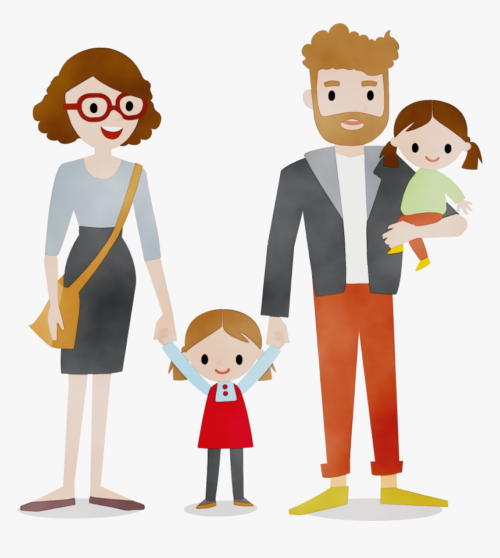The corona outbreak has been a pandemic that has affected almost all the countries in the world, and is gradually getting worse making our lives stand still. It is a situation of crisis where everybody is feeling vulnerable and full of uncertainty about the future. A small virus has impacted the whole world in a very big way economically, socially and psychologically.
With everything under lockdown at present, all schools and colleges shut down, and the children at home, it creates additional burden on the parents. The crisis has created the situation now where parents and children are together 24 hours in the confines of one place only. It is getting on the nerves of some parents who are finding it increasingly stressful to handle the children alongwith the uncertainties created by this pandemic.
Here are a few tips to handle parenting stress in such a crisis situation created by corona pandemic:
Crisis or opportunity: change the perspective
Let us first focus on how are we viewing the current situation – a crisis or an opportunity? The Chinese word for crisis is ‘weigi’. However, interestingly, this same word is also used for opportunity. Thus, it indicates that there are always two sides, like a coin has two sides to it. Every crisis situation presents an opportunity also, we need to recognize that and focus on it. As parents, a common complaint has been that we don’t get enough time with our children. But now that we are getting all the time with our children, it is creating stress! So we need to recognize this opportunity and know how to make the most of it.
Listen to the child
One first thing will be to really listen to the child. What are their thoughts, feelings, fears, anxieties, etc. Children who are full of energy and activeness are now bound to their homes only and their image of a regular day has been disturbed. So listen to them actively and try to understand their thoughts and concerns. Further, communicate the right message to them so that they don’t get panicked or develop irrational fears.
Control your own fears and anxieties
Children are quick to absorb the sense of worry and anxiety around them. They may not have a proper perspective to situate these anxieties and fears. It may create a sense of loss of control over their lives and fear of unknown in them. Hence parents will do better by not getting excessively worried and panicked. At the same time, avoiding and hiding the situation is also not the answer. Rather, we have to face the situation straight and talk about it in a calm, positive and planned manner.
Focus on what you can control
A crisis situation generates a feeling of loss of control because so many aspects of our lives get impacted simultaneously and suddenly. As Caplan (1961) says, “people are in a state of crisis when they face an obstacle to important life goals – and obstacle that is, for a time, insurmountable by the use of customary methods of problemsolving.”
However, we can always control our ‘responses’ to such crisis situations.
Focus on the positive aspects of life. Learn to appreciate the good things that you have. Practice the language of gratitude and compassion. This way you will set a good example before the children to have a right perspective.
Develop the skill of resilience
Use this opportunity to help children learn how to face a difficult situation and be resilient in the face of adversity. Resilience is the ability to bounce back from a crisis or adverse situation. It includes being confident, having a positive attitude and using effective coping strategies. Thus we can focus on these characteristics, talk along these lines and facilitate instilling these in our children. And for this to happen effectively, we ourselves first need to be the role model.
Self care
Care for yourself is an important step that will help maintain one’s balance and keep patience in a demanding situation. Spare enough time for your own self to have proper sleep, exercise, meditate and do something of your interest. This will give you the energy to interact more effectively with your children.
Create personal time and family time
Since all the family members are together at home in this lockdown period of corona pandemic, it may sometimes get on the nerves of each other and personal spaces may be violated. Hence it is important to have a clear discussion and understanding among the family members so that each can do their own thing and at the same time some common activities can also be planned to do together. This will help take care of the personal needs of the children, give space to each family member and also promote family interaction, thus avoiding interpersonal and inter-generational conflicts and interference.
Engage with your children by talking to them about your childhood, playing board games, reading stories together, solving a puzzle, doing art and craft, or baking a cake together etc. The ideas are plenty, it only needs your creative thinking to generate opportunities of togetherness and bonding.
Make it a positive experience despite the crisis
Be flexible with children and don’t insist on a very regimented schedule. Give them freedom to do what they like to do. At the same time, a tentative structure needs to be there with one or two things that needs to be done along with other activities of their interest and choice. At the end of this uncertainty, it is not that they will remember what they studied and learned; more than that they will remember it as to how did they experience it. So do everything to maintain an atmosphere of calm, interactiveness, togetherness and cheerfulness.
The present crisis has reminded us of the mad rush of the 21st century and put us on hold to realize the true meaning of life where we need to interact, spend time with each other, do not rush but take life as it is and enjoy. Children will grow anyway, but what kind of life are we giving them. Do we want them to join this mad rush for marks, ranks, medals and careers only; and in the process lose the essence of life to learn to live and let live?
It’s time we just raise our children to be good human beings rather than scientists, doctors and so on. The corona crisis has given us an opportunity to reflect on our relationship with our children and make it more dynamic and vibrant.
The author of this article is Prof. Swati Patra from IGNOU, New Delhi.
Reference:
- Caplan, G. (1961). Prevention of mental disorders in children. NY: Basic books.


